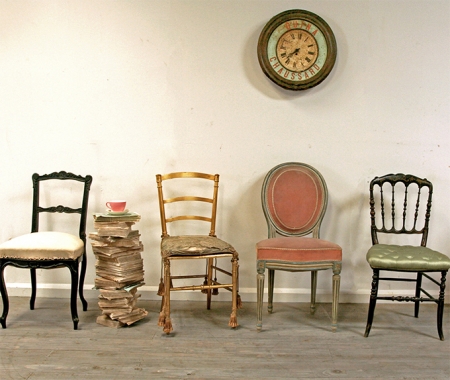The Waiting Room
The Waiting Room
Time is my nemesis. Every day I must do battle with it.
Time appears to be such an ephemeral and fluid thing - it seems such a shame to carve it up with precise mathematical segmentation so that we can quantify it’s passing and plan how we are going to use it before it even arrives. Hours and minutes help us to describe time and allow us I suspect, to pretend to understand it.
A day, I am told, should be enough allocation of time to do a good many things but somehow all the things I intend to do in a day just never get done. Time is a trickster - it certainly doesn’t feel like it dishes itself out in the standard portions that the clock insists it does. What gets done gets done and what doesn’t doesn’t and this is how it has been ever since I can remember.
I have long ago accepted that time and myself are really never going to get along although I have had intermittent attempts at changing this. When I started high school my mother bought me my very first watch. I remember being in love with the unusual shade of maroon on the clock face and the shiny leather strap. I wore the watch more like a piece of jewellery and when I eventually connected the gentle tick and the inexorable rotation of the hands with the finite countdown of my life the watch was removed from my wrist and carried more like a pocket watch to be consulted only when necessary - when one needed to catch the bus for instance.
In the 1980’s I bought a filofax wishing to structure my days and emulate all those time efficient and professional people I observed around me; the filofax quickly became a surreptitious sketch book disguised as organisation with a fabulous fold out world map that prompted many travel themed day dreams. Now many years on, with a wealth of retrospective analysis I have deemed this time management thing to be a frustrating and futile activity - time will win in the end.
If you don’t look at a clock time can surprise you. It possesses an elastic quality, it can bend and stretch to accommodate various moods and activities. This is my theory and every summer I prove my hypothesis. For a treasured few weeks at the cottage by the sea the only clock, the one on the oven, is covered with dense black electrical tape and the days unfold free of schedule and unfettered by time. Time slows down, the days are full and it is bliss.
Owning antiques feels a little like capturing time in a sense - tapping into that continuum that is more enduring than our singular lives. As time continues to creep it’s petty pace from day to day and we sit on our 19th century chairs to eat at our 18th century table we invite the centuries into our home - it seems to defy the brevity of it all somewhat and it is probably the only small victory I will ever have in this relentless struggle with time.

